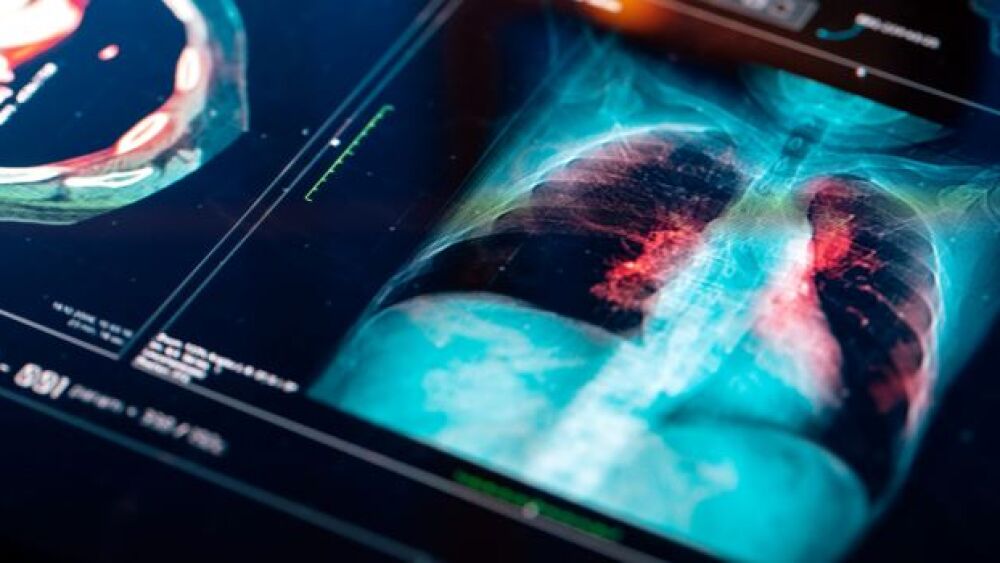Following recent meetings with the FDA and European Medicines Agency, Mereo Biopharma is designing a Phase III study of alvelestat to treat alpha-1-antitrypsin deficiency-associated lung disease.
Pictured: Radiographs of lungs/Image courtesy of Getty Images
Following recent meetings with the FDA and European Medicines Agency (EMA), Mereo Biopharma is designing a Phase III study of alvelestat to treat alpha-1-antitrypsin deficiency-associated lung disease (AATD-LD).
Regulatory authorities provided clear recommendations on proceeding with its clinical evaluation, according to Mereo. This resulted in two independent primary endpoints.
The FDA and EMA recommended that Mereo use Patient-Reported Outcomes (PRO) and lung density measured by CT scan, respectively, as the primary endpoints for the Phase III trial.
The FDA prioritized PRO trial design in its agenda to implement provisions of the 21st Century Cures Act to improve the agency’s use of PROs to inform regulatory decision-making.
Mereo representatives noted that both primary endpoints had been previously associated with reductions in some disease activity biomarkers, citing one analysis published in 2016. They further suggested the Phase III study would use the PRO from the St. George’s Respiratory Questionnaire Activity domain.
Alvelestat gained Orphan Drug Designation from FDA in October 2021. The drug also earned FDA Fast Track Designation in October 2022.
A Much-Needed Win
Also in Octoberr, Mereo faced financial and corporate governance issues, cutting 40% of its headcount and reducing expenses to support advancing its lead programs through the clinic.
Mereo issued a shareholder circular ahead of a proxy battle between the London-based company and New York City-based investment adviser Rubric Capital Management. A few days later, the parties settled their proxy battle under a cooperation agreement for four new members to be appointed and four to resign from the Mereo board.
Mereo intends to use its Phase III study to evaluate alvelestat at 240 mg to seek marketing approvals from the U.S. and the EU without an additional confirmatory trial.
Representatives believe the clear path set forth by the FDA and EMA recommendations will aid the company in exploring potential partnerships to fund the Phase III study, which is expected to enroll 200 patients.
If successful, the trial will give Mereo leverage for reimbursement discussions with payers after receiving regulatory approvals, according to Tuesday’s press release.
Denise Scots-Knight, CEO of Mereo, said this is the first time a proposed registrational study in the AATD-LD space will use a PRO approach and an objective clinical outcome measure as independent primary endpoints.
BioSpace could not immediately reach Mereo for comment Tuesday.






